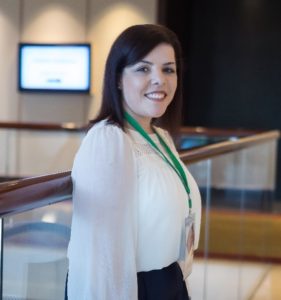 |
Dr Suhair Sunoqrot is an Associate Professor of Drug Delivery and Nanomedicine at Al-Zaytoonah University of Jordan, Faculty of Pharmacy. Dr Sunoqrot received a BSc in Pharmacy from the University of Jordan in 2007, and a PhD in Biopharmaceutical Sciences from the University of Illinois at Chicago in 2013. During her PhD, she worked on various projects involving the development of lipid- and polymer-based nanocarriers for targeted anti-cancer drug delivery. Notably, she was a Fulbright Postdoctoral Scholar in Prof Phillip Messersmith’s lab at UC Berkeley, and a Daniel Turnberg Fellow in Prof Khuloud Al-Jamal’s lab at King’s College London. She received the PhosAgro/UNESCO/IUPAC Green Chemistry for Life Award in 2018 and The World Academy of Sciences (TWAS) Prize for Young Scientists from Jordan for the same year. She was elected as a member of the Arab-German Young Academy of Sciences and Humanities (AGYA) for 2019 – 2024 and a TWAS Young Affiliate for 2021 – 2026. Dr Sunoqrot’s research focuses on the development of nanoscale solutions to tackle delivery challenges of poorly water-soluble drug candidates, with special interest in the valorization of plant polyphenols both as therapeutic agents and as nanomaterial building blocks. She can be followed on LinkedIn (https://www.linkedin.com/in/ssunoqrot/), ResearchGate (https://www.researchgate.net/profile/Suhair-Sunoqrot), and Twitter (@SuhairSunoqrot). |
Read Suhair’s Emerging Investigator article, ‘Rhoifolin loaded in PLGA nanoparticles alleviates oxidative stress and inflammation in vitro and in vivo‘ DOI: 10.1039/D2BM00309K
Check out our interview with Suhair below:
1. How do you feel about Biomaterials Science as a place to publish research on this topic?
Nanomedicine is a multidisciplinary field that combines knowledge in materials science, biology, and medicine, making Biomaterials Science an ideal place to publish research on this topic. The Journal’s high standards, rigorous review process, and international readership ensure maximum dissemination of important research findings to the scientific community and beyond.
2. What aspect of your work are you most excited about at the moment and what do you find most challenging about your research?
I am continuously amazed by the countless possibilities enabled by nanotechnology, particularly in the field of medicine. We are currently interested in plant polyphenols both as therapeutic agents and as nanomaterial building blocks. This area of research is exciting as much as it is challenging, due to the chemical diversity of these compounds and their unique physicochemical and biological properties, which need to be properly elucidated to advance them further in preclinical and clinical settings.
3. In your opinion, what are the most important questions to be asked/answered in this field of research?
With all the great advances being made in nanoscience and nanomedicine, some important questions need to be answered concerning their interactions with the bio-interface, in vivo fate, and long-term physiological effects. From a manufacturing standpoint, the scalability of the various nanomedicine formulations, their affordability, and their environmental footprint should also be taken into consideration.
4. Can you share one piece of career-related advice or wisdom with other early career scientists?
My best advice to other early career scientists is the following quote by Marie Curie, “Be less curious about people and more curious about ideas.”










